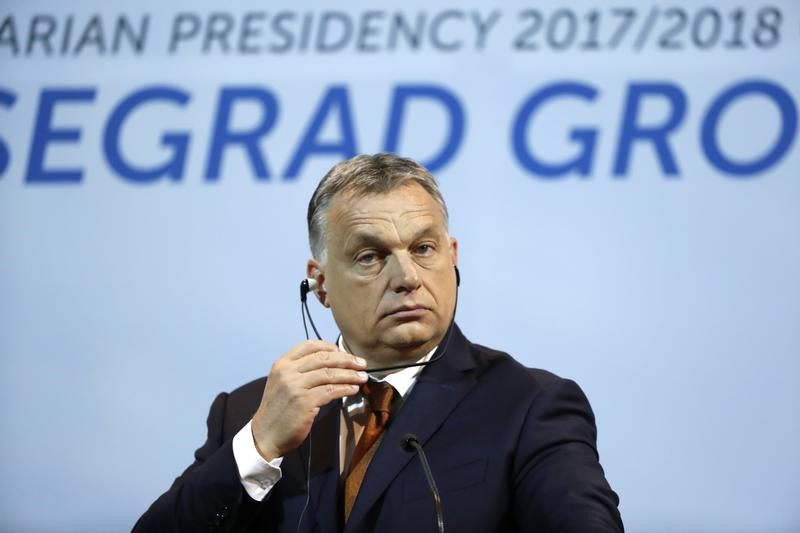By Krisztina Than
BUDAPEST (Reuters) - Prime Minister Viktor Orban will ask the EU to finance half the cost of Hungary's border defense measures to keep out migrants, an aide said on Thursday, days before a court ruling on Hungary's rejection of the bloc's migrant quotas.
Migration policy has been the focus of deep division within the 28-member bloc, with hundreds of thousands of refugees arriving in Europe, largely from conflict zones in the Middle East and Africa.
Orban's chief of staff, Janos Lazar, said Orban would write to European Commission President Jean-Claude Juncker on Thursday, asking the European Commission to contribute about 400 million euros.
He said Hungary, its borders with Serbia and Croatia fortified with a fence, police and troops, "was protecting all the citizens of Europe from the flood of illegal migrants" and it was time the EU helped Hungary as it did Italy, Greece and Bulgaria.
"Double standards cannot be applied," Lazar told a news conference.
REFUSING ASYLUM SEEKERS
Hungary's request comes just days ahead of a ruling by the top EU court in a case which Hungary and Slovakia launched against the obligatory relocation of refugees across the bloc.
There is a chance the court will dismiss the challenge by the two east European countries after its Advocate General Yves Bot rejected procedural arguments presented by Bratislava and Budapest that obligatory quotas were unlawful.
The two states - backed by their neighbor Poland - wanted the court to annul a 2015 EU scheme to have each member state host a number of refugees to help ease pressure on Greece and Italy, struggling with mass arrivals across the Mediterranean.
Lazar said he did not want to comment on the case before the ruling but reiterated that Hungary retained the right to decide whom it wants to admit and allow to settle in the country.
In June the European Commission also launched a legal case against Poland, Hungary and the Czech Republic for refusing to take in asylum seekers.
Orban, one of the EU's toughest opponents of immigration from the Middle East, has been campaigning against migration for several years. His tough rhetoric goes down well with his rightwing party's voters ahead of elections in April 2018. Orban's Fidesz has a firm lead over the opposition in polls.
In 2015, hundreds of thousands of migrants fleeing war and poverty passed through Hungary en route from the Middle East and Africa to western Europe.

There are currently less than 700 migrants in the country, of whom about 430 are kept in two closely guarded container camps on the Serbian border.